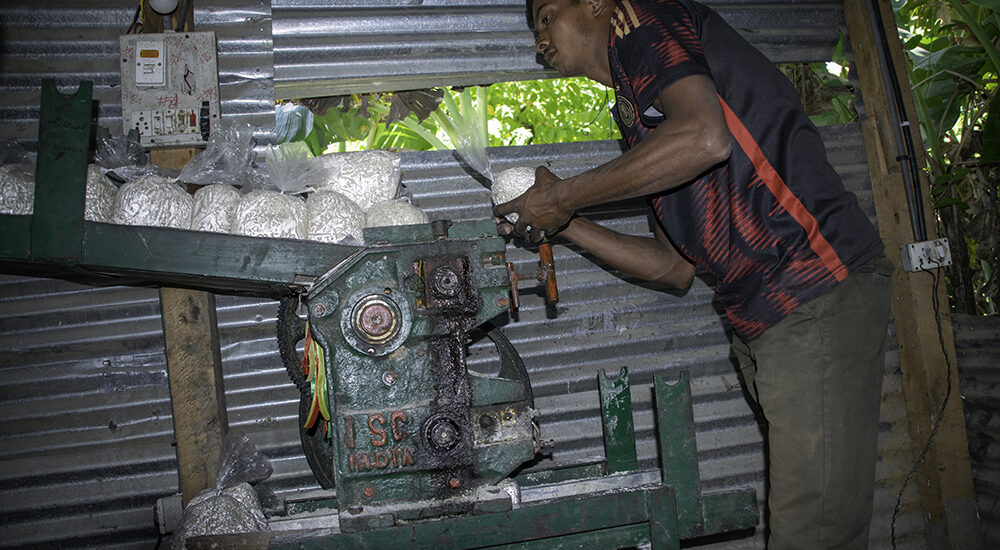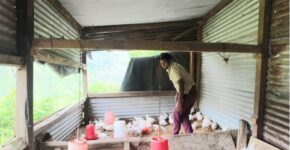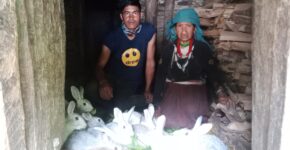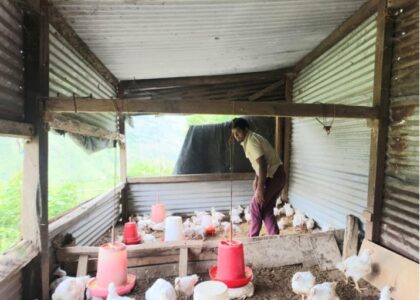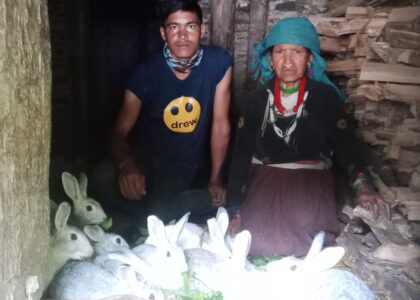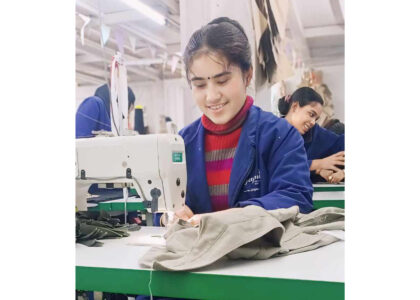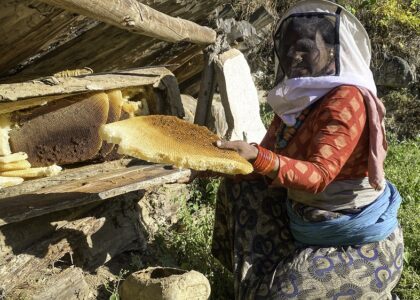Many people find it hard to believe that there is a chowmin industry in Thalara municipality. Because many people think that chowmin is found in the market, not in the village. However, Ganesh Giri (28 years old) in Thalara-6, Seralagaon, Bajhang, started a chowmein industry from his own house after COVID.
He had been working in India before COVID. He spent 5 years working in a factory and 3 years in a shop. He used to earn 10–15 thousand per month. As his work was discontinued after the COVID lockdown, he returned home. After coming home, he became idle and unemployed. It was during this time that he first got to know and understand Chowmin Production and its business from his friend’s brother.
Because of his keen interest, he acquired the necessary knowledge and skills for Chowmin production. He even dreamed of producing chowmin on his own, but it was almost impossible with his financial status. As it says, “when there is will, there is a way,” the Sirjana project started at his Thalara municipality. He was happy to learn that the project would help with skills and resources to become an entrepreneur in their own place.
He took a small loan and built a cottage for the Chaumin factory along the main road near his house. The project provided him with the necessary machines and other equipment for running the Chaumin industry. He got two (1 big and 1 small) flour kneading machines, flour cooking and boiling utensils, a flour extracting machine, a weight machine, a fridge, a gas stove, a cylinder, etc.—all the necessary support materials for the industry. He also bought an old bike to deliver Chowmin with the remaining loan from making a cottage.
He works for himself in the chowmein industry. He goes to the industry early in the morning to work. By 10–11 am, he prepares the chowmein, puts it on the bike, and delivers it according to the order. His chowmin reaches almost every ward of the Thalara municipality. Especially in hotels and fast food, his chowmin goes on a daily basis. Some locals even take it to their homes. It is an interesting fact to make chowmin accessible in the local village. Chowmin is generally perceived to be available only at the district headquarters or in the market.
He sells 100 kg of chowmein every day, out of which he generates a profit of Rs. 2,000 per day. At least Rs. 40,000 in profit per month is made. He even paid off his loan with his profits. His daily income has been supporting his household expenses.
Starting early in the morning, he makes chowmein, packs it, and delivers it. Then, he prepares the materials for the next day. During his free time in the afternoon, he takes care of his family, supporting them with poultry and vegetable farming.
He says, “I am very happy to earn living and staying with my family, eating at my own home, speaking my own language, and doing business in my own place. Since I had a low income level, I never imagined opening my own chowmin industry. The Sirjana project appreciated my skills, believed in me, and helped me to initiate the chowmin industry, and I became an entrepreneur.” In the near future, he is thinking of expanding his business, making full use of the existing machines and other equipment, and giving employment to other locals. A successful aspect of the Sirjana project is that its encouragement and support can help explore the full potential of the locals as entrepreneurs.


